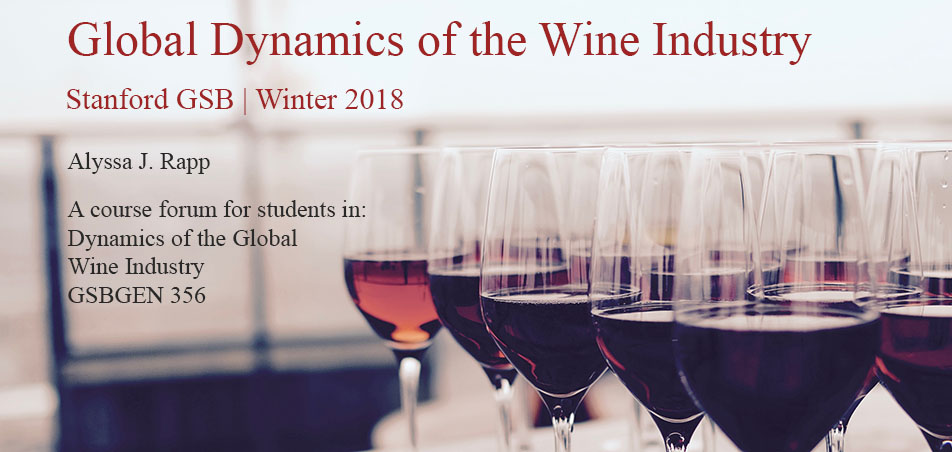Our discussion in the last class left
me thinking about the role, and value, of history in winemaking. Christine Wente shared her family’s impressive
history, but also couched it with the fact that there were families in Italy
that had 20+ generations in the family wine business. On the surface, it seems like that storied
history should give old world countries an insurmountable advantage in the knowledge
of wine making, yet there are many instances where winemakers (and countries)
new to wine can make inroads, such as in the case of Inniskillin.
Similarly,
a tradition in wine making doesn’t necessarily mean that wines will be high
quality – for example, I traveled this summer on a GSB Global Seminar to Greece,
which has been producing wine for the last 6,000+ years and has a strong
culture of wine consumption (pretty much every meal we had was served with
wine). You would think that this might provide
Greece a strong advantage in wine making, but the winery we visited (Ktima
Gerovassiliou) was only established in the 1980s and was one of the few
wineries on the Greek mainland that produced wines with high enough quality for
export, since ~90% of Greek wine is consumed domestically. That winery collected artifacts from ancient
Greek wine production – indeed, the Greeks developed some of the earliest wine
containers and wine presses found to date (see picture below). It was interesting to see how strong the
history of winemaking is in Greece, yet how difficult it has been for that
country to produce wines on par with the likes of France and Italy. I’m sure political, regulatory, and economic
forces most certainly played a role, as we have been discussing in class.
I’m looking forward to learning
more in the new few weeks about how different countries rose to prominence in winemaking
while others have lagged behind – which will lead into our midterm project to predict
where the next big wine regions to rise to prominence will be.


I was wondering this same thing. To me it seems like more of a marketing ploy that a family legacy in wine makes for better wine. It makes for a better story to tell about your wine, but I’m not convinced the wine would be better. I don’t see why the knowledge of wine making that is passed down from generation to generation cannot be learned from a newcomer to the industry through discussion with seasoned wine makers. After all, the argument is that it can be passed down to kin and they are a newcomer to the industry just the same. Also, if a family is steeped in one tradition, they may not take on better approaches that a newcomer could glean by learning from many winemakers.
ReplyDeleteHowever, maybe the actual vines, because of age etc., create different/better wine. I’d be interested to learn more about that. If old wineries have a monopoly on the supply of high quality land/grapes, then that could give them a lasting comparative advantage. If you have a monopoly on the supply of a component of production, then I could see why the incumbent would have a lasting advantage.
At the end of the day, while it may be hard to learn the process of wine-making, I don’t see that as an insurmountable barrier to competitors. I was thinking about car makers that have made generations of cars and have generations of institutional knowledge, which is essentially what family wineries have just the institutional knowledge is housed within a family instead of a corporation. These traditional car makers were still blown out of the water in the electric vehicle space by Tesla. Obviously, cars have more variety etc. than wine, but the principle that the upstart may be willing to go where traditional firms have not and create something better can be true in any industry. I would love to learn more arguments from future guests on why a multi-generational family winery should be able to produce higher quality wine than competitors.